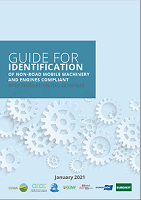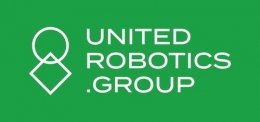
March 2016
Robots and Jobs in Obama’s Economic Report to US Congress
Deployment of robots has accelarated in recent years leading them to contribute more to productivity.
There is a need for robust training and education agenda to ensure displaced workers can quickly and smoothly move into new jobs.
In February 2016, President Obama submitted the latest U.S. Economic Report and the annual report of the Council of Economic Advisers, to the U.S. Congress. The report thoroughly examines the current state of U.S. economy and its role in the global economy including comprehensive analysis leading to what the government should focus on and where the priorities lie.
An array of domestic issues and policies are covered from income inequality and labor market to global macroeconomic situation and the importance of technology and innovation. The chapter exclusively on “Technology and Innovation” mainly focuses on: the role of technology and automation in today’s economy and their impact on jobs, the need for adequate training and education, more support for start-ups and small businesses.
Over the last decade, even though the United States has led other advanced countries in labor productivity growth, achieving robust measured productivity growth has been a substantial challenge. Thus in the context of technology and innovation, particular emphasis is put on two new opportunities with great potential for broad spillovers into different parts of the economy. One area is the rapidly growing field of “robotics”. The other area involves “digital communications technology”.
Recently, the deployment of robots has accelerated, leading them to contribute more to productivity. A recent study estimates that robotics added an average of 0.37 percentage point to a country’s annual GDP growth between 1993 and 2007, accounting for about one-tenth of GDP growth during this time period (Graetz and Michaels 2015). This same study also estimates that robotics added 0.36 percentage point to labor productivity growth, accounting for about 16 percent of labor productivity growth during this time period. This effect is of similar magnitude to the impact that the advent of steam engines had on labor productivity growth (Crafts 2004).
Growth in robotics shipments has increased since 2007, suggesting that robotics may contribute even more to GDP and labor productivity growth in the future. From 2010 to 2014, worldwide shipments of industrial robotics have nearly doubled, according to the International Federation of Robotics (IFR).
While industrial robots have the potential to drive productivity growth in the United States, it is less clear how this growth will affect workers. Several major studies and their findings are mentioned in the report concerning the impact of robotics and automation on jobs. One view is that robots will take substantial numbers of jobs away from humans, leaving them technologically unemployed—either in blissful leisure or, in many popular accounts, suffering from the lack of a job. Most economists consider either scenario unlikely because several centuries of innovation have shown that, even as machines have been able to increasingly do tasks humans used to do, this leads humans to have higher incomes, consume more, and creates jobs for almost everyone who wants them. In other words, as workers have historically been displaced by technological innovations, they have moved into new jobs, often requiring more complex tasks or greater levels of independent judgment.
The broader literature finds that, while there is some substitution of automation for human labor, complementary jobs are often created and new work roles emerge to develop and maintain the new technology (Autor 2015). One issue is whether these new jobs are created fast enough to replace the lost jobs.
A critical question, therefore, is the pace at which this happens and whether the labor market institutions facilitate the shifting of people to new jobs.
The Obama report underlines the importance of keeping in mind that, while growing quickly, robotics are not poised to affect every area of the economy or replace human labor. An economy must carefully assess the rapid technological developments to encourage innovation but also to provide adequate training and protections for workers. The gathered data demonstrate the need for a robust training and education agenda, to ensure that displaced workers are able to quickly and smoothly move into new jobs.
Industrious Brussels EU District, Avenue des Arts 6-9, 1210 Brussels, Belgium, +32 490 57 57 65
Transparency Register number: 0289344948-82














































































































